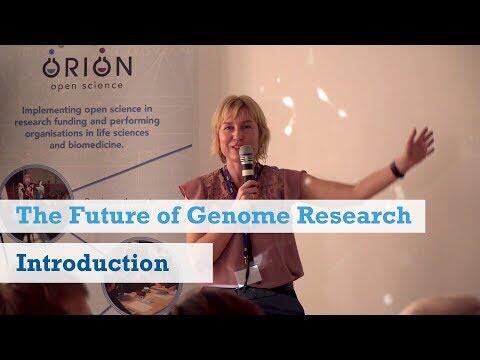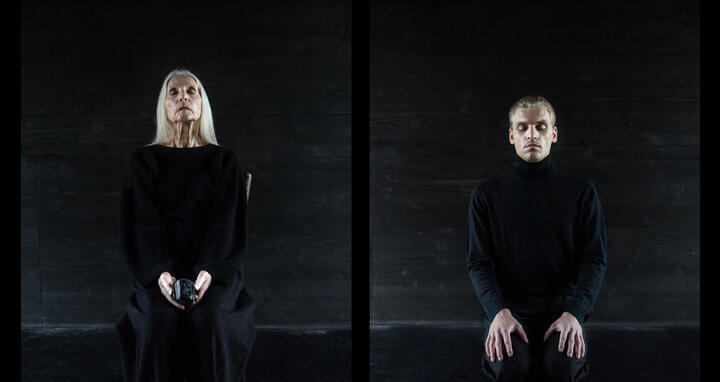📺 Videos: Would you want to live forever?
Genome editing tools such as CRISPR are beginning to reshape the physical world around us, one base pair at a time. As an Artist in Residence in the labs of Sebastian Diecke, Ralf Kühn, Uwe Ohler and Boris Tursun, the artist Emilia Tikka explored how this could affect society in the future. On November 1st, 2018, she presented the resulting artwork called “ÆON – Trajectories of Longevity and CRISPR” at the science art gallery STATE Studio in Berlin. See her artwork by watching the video "Would you want to live forever?”.

The result of Emilia Tikka's artist residency on the topic of gene editing at the MDC and the science behind it: the artwork, a mini symposium and a panel discussion.
Together with the gallery, the MDC and the ORION Open Science Project of the European Union also invited to a mini-symposium on the topic of immortality. You can watch all presentations and the discussion online:

Emilia’s artistic concept is a speculative scenario about a possible future of genome editing technologies and the human obsession of youth. The residency project is concerned with the human desires and dreams driving current biotechnology from institutional laboratories to citizen science tinkerers. The project will inspire and contribute to the ORION public dialogue and is aiming to engage society in discussions of risks and opportunities presented by disruptive technologies, such as CRISPR-Cas9.
The exhibition of the artwork at STATE Studio, Hauptstraße 3, 10827 Berlin, is expected to run until the end of April. Opening hours: Monday-Friday, 12-7 pm.
About the residency
The residency was a cooperation between MDC and STATE, a Berlin-based Art and Open Science initiative, aiming at guiding an open dialogue around critical issues regarding the cultural impact of scientific research. The project was financed by ORION Open Science Project at the MDC https://www.mdc-berlin.de/orion-open-science
Read more about the project
- Nature, November 30, 2018: “Love, Death and Crispr: An Artwork”
- MDC Press Release, May 10, 2017: “MDC to make research more publicly accessible in EU project”
- Süddeutsche Zeitung, August 15, 2018: “Kunst mit Gentechnik”





